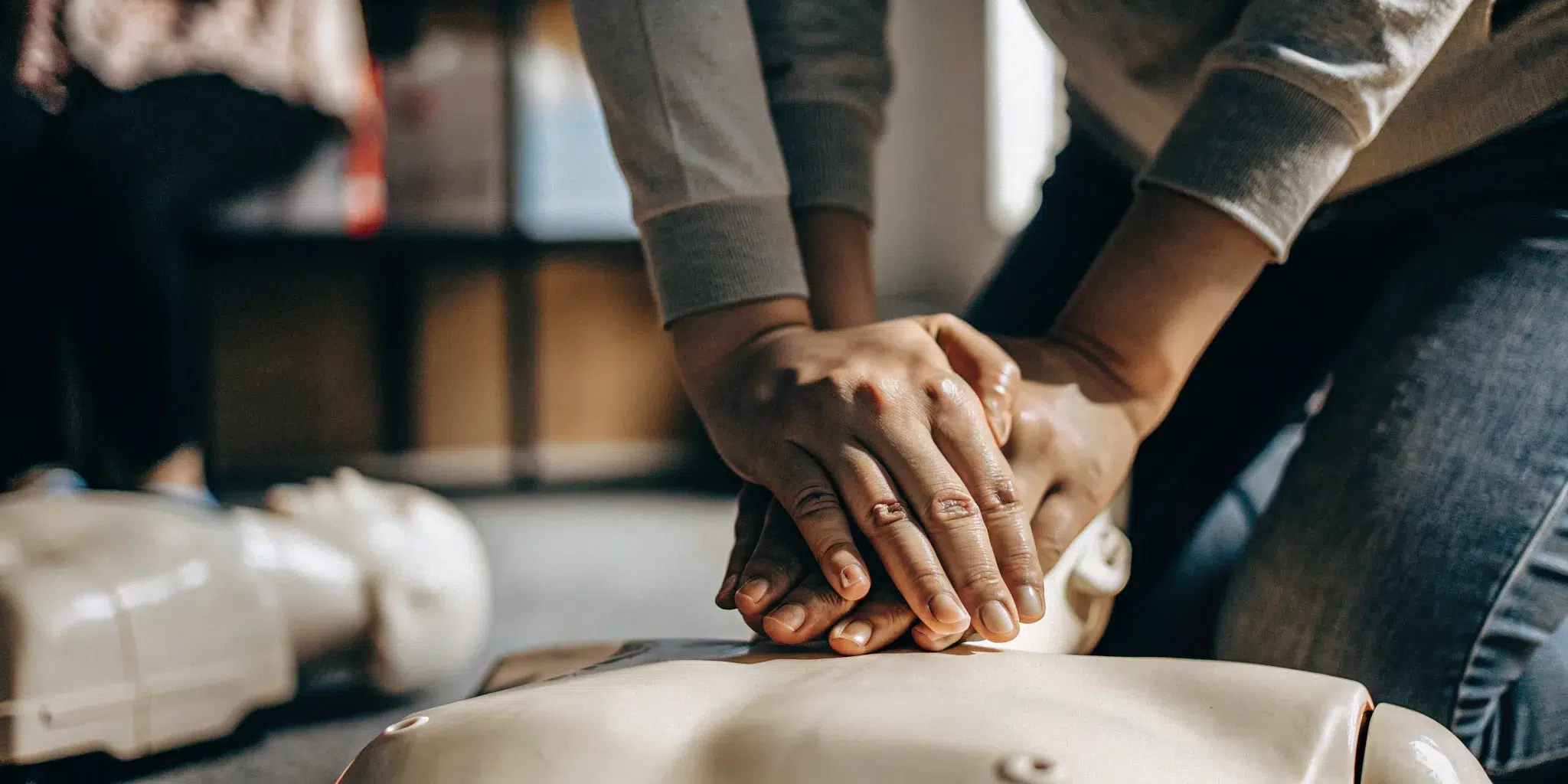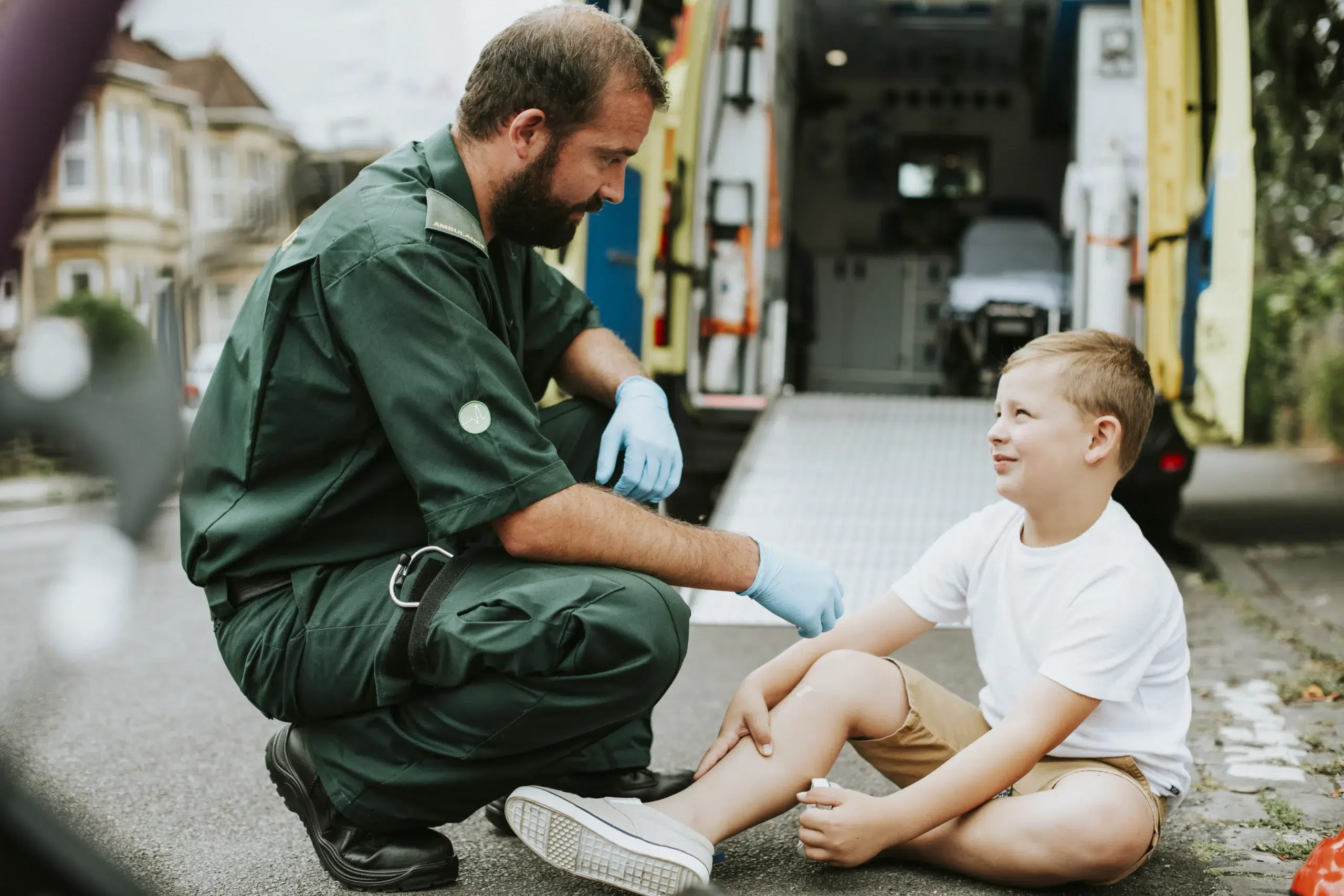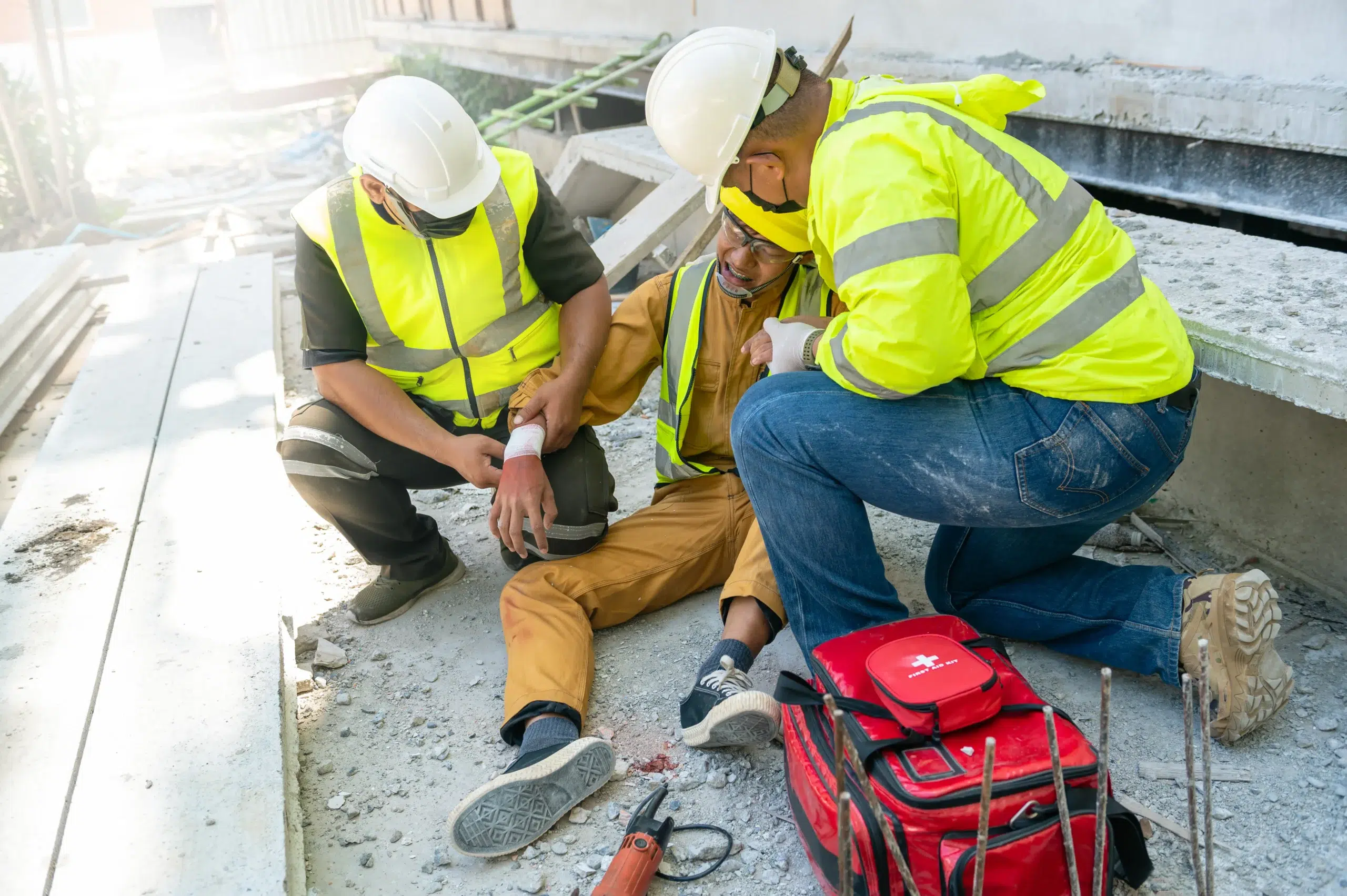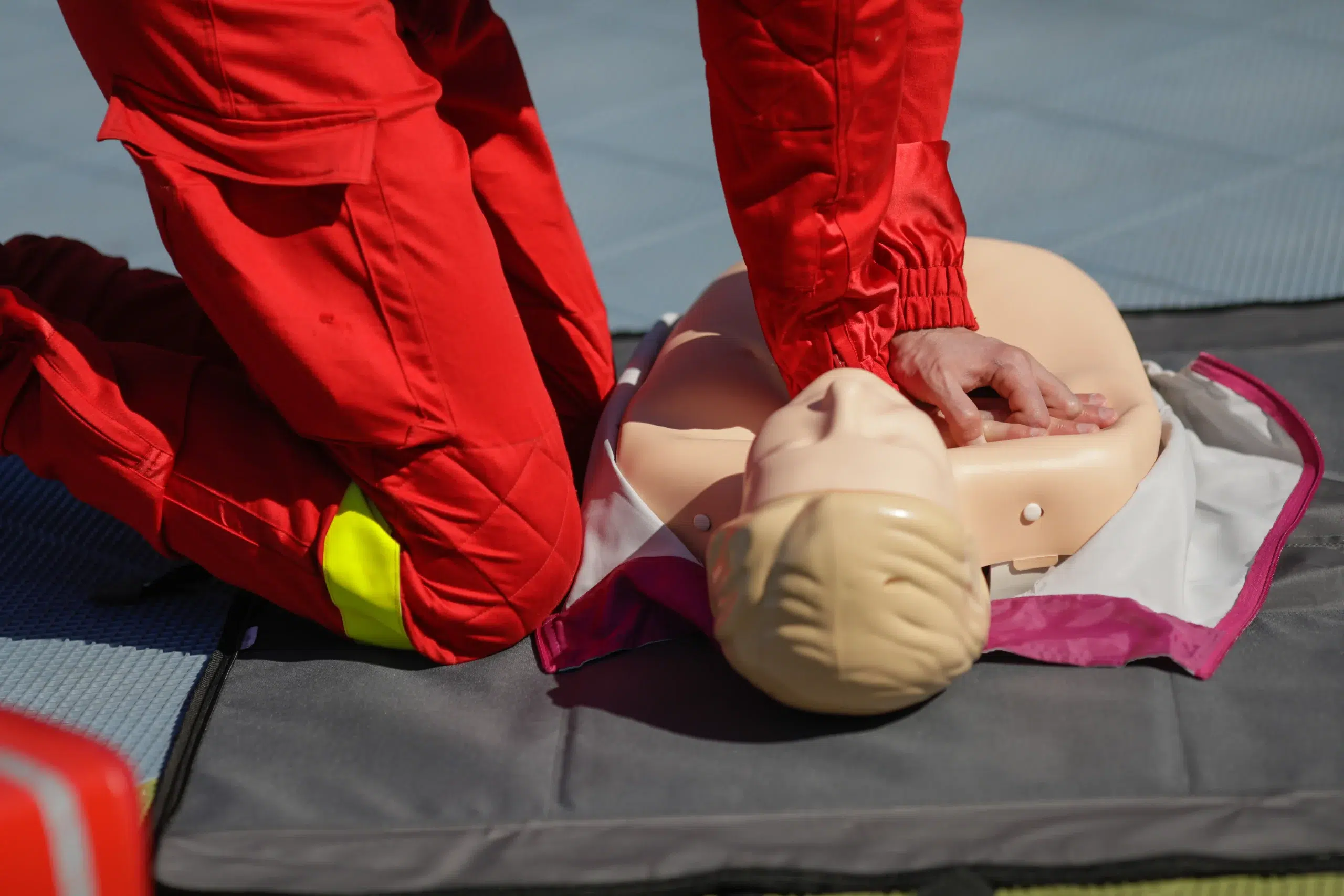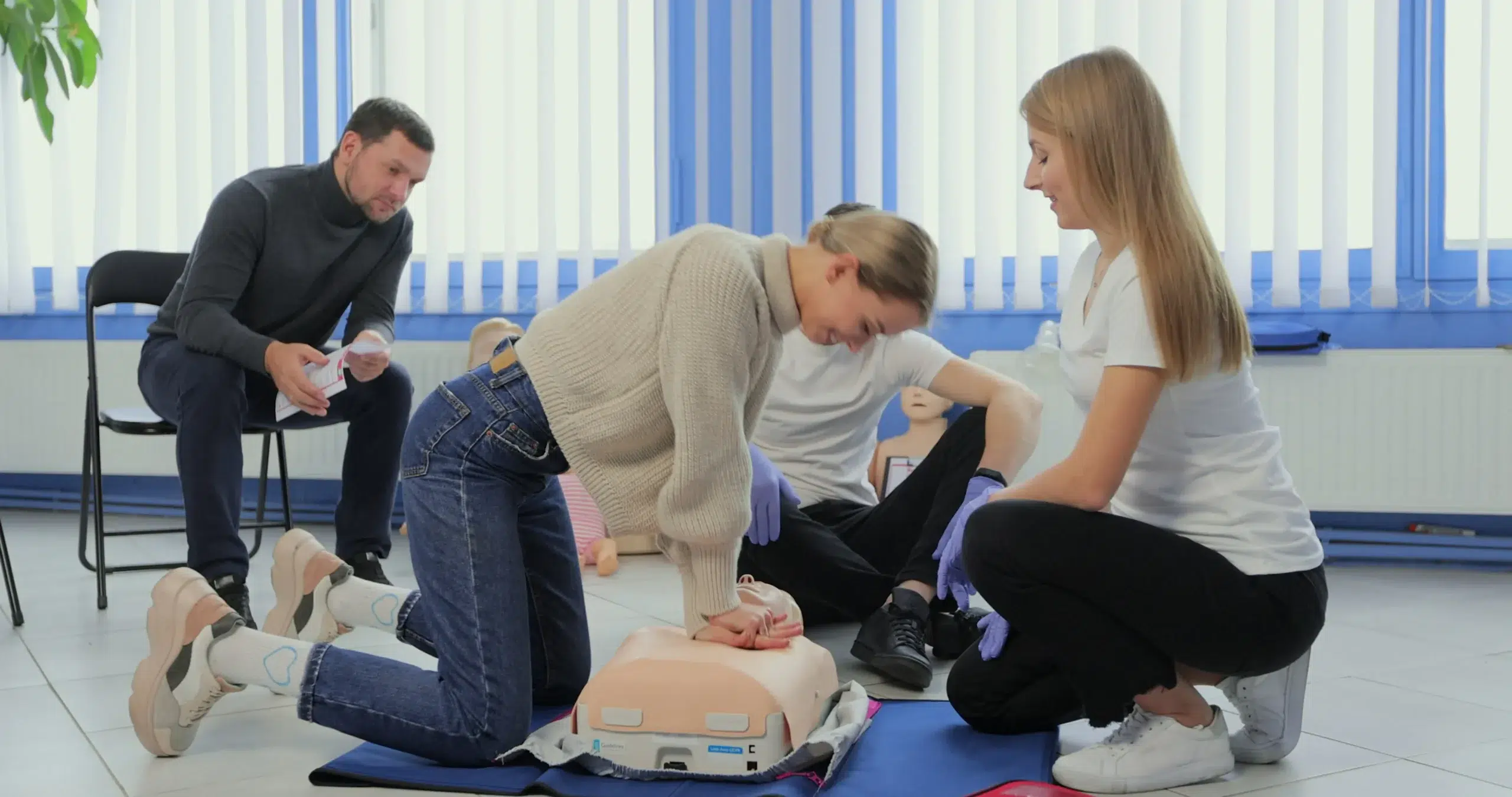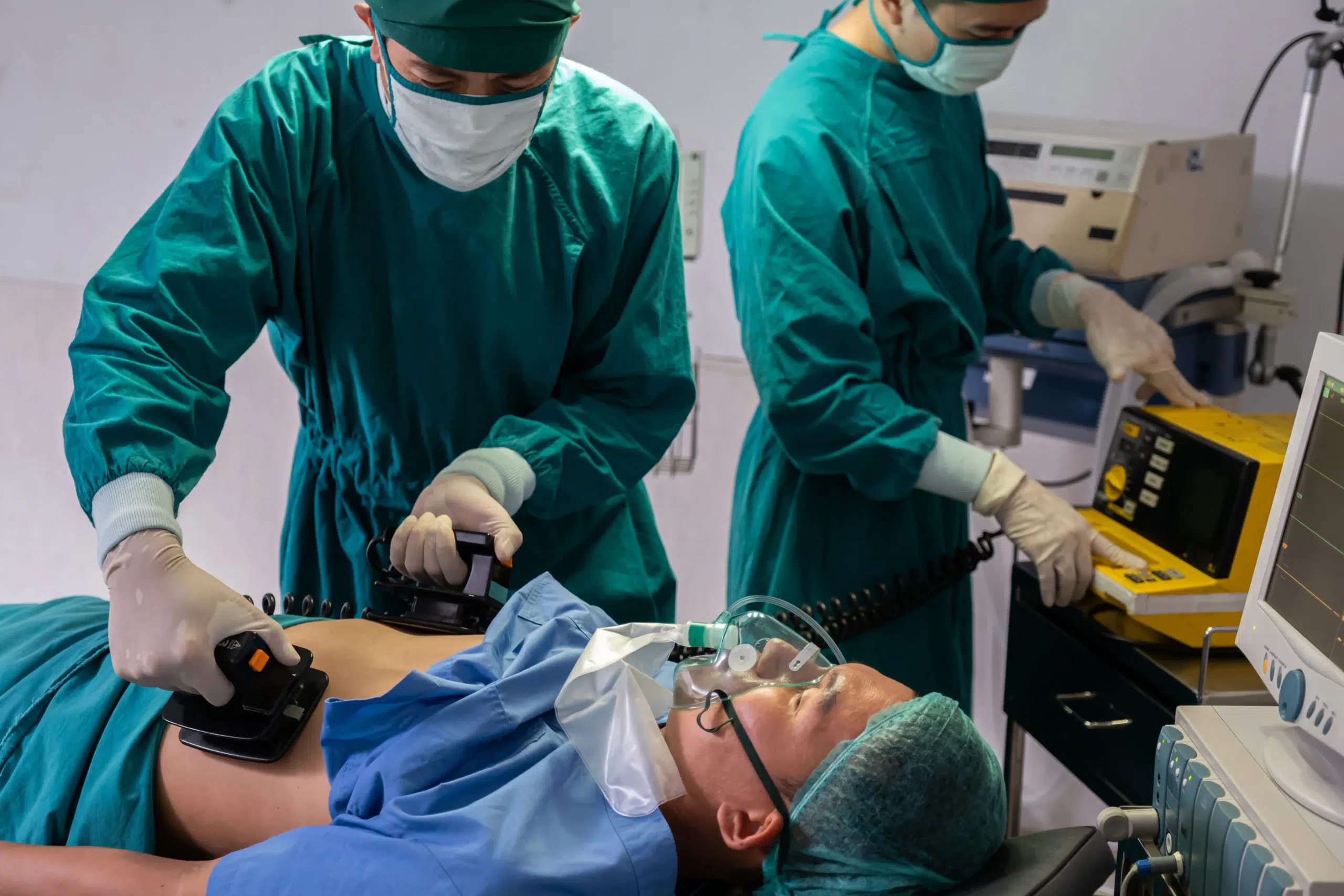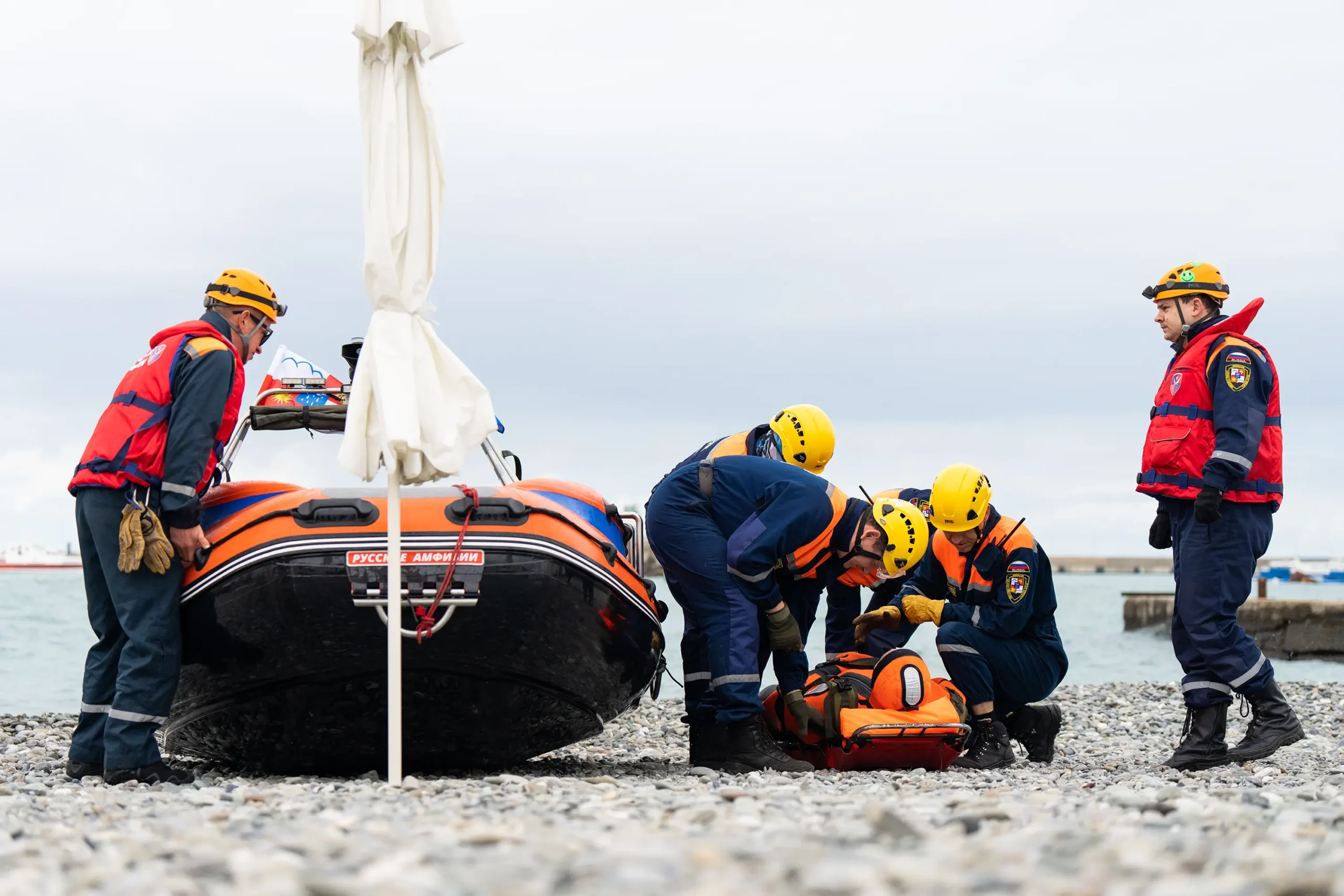In a medical emergency, seconds can matter. CPR can be the bridge between life and death, and knowing how to perform it can make you a vital link in the chain of survival. If you’re in Daly City and looking to learn this life-saving skill, this guide is for you. We’ll explore the various CPR classes in Daly City, discuss costs, certification, and what to expect during training. We’ll also debunk common CPR myths and highlight the importance of having these skills in our community. Empower yourself to make a difference—learn CPR and be prepared for anything.
Key Takeaways
- CPR certification is readily available in Daly City: Choose from various courses like BLS, ACLS, PALS, and First Aid to match your specific needs and schedule, with options like Millbrae CPR Classes offering competitive pricing and group discounts.
- CPR skills empower you to make a difference: Learning CPR increases survival rates for cardiac arrest victims, contributes to a safer community, and provides valuable peace of mind.
- Finding the right CPR class is straightforward: Whether you’re a healthcare professional, work with children, or simply want to be prepared, you can find a course that suits your requirements and learning preferences, including in-person, online, and blended learning formats.
What is CPR and Why is it Important in Daly City?
Cardiopulmonary resuscitation (CPR) is a life-saving technique used when someone’s breathing or heartbeat has stopped. This can happen during a heart attack, stroke, near-drowning, or other medical emergencies. CPR involves chest compressions and rescue breaths that circulate oxygenated blood to the brain and other vital organs. Keeping blood flowing helps prevent irreversible damage until professional medical help arrives. Learn CPR and be prepared to make a difference.
Why is CPR so important, especially in a place like Daly City? Over 350,000 cardiac arrests happen outside of hospitals each year in the US. Immediate CPR can dramatically improve the odds of survival. CPR training equips people with the skills and confidence to respond effectively in these critical situations. In Daly City, a quick response can make all the difference. Knowing CPR can truly be the difference between life and death. It empowers you to protect your loved ones and contribute to a safer, more prepared community.
CPR Classes in Daly City: What Are Your Options?
Choosing the right CPR class can feel overwhelming with so many options. This section breaks down the most common types of CPR training available in Daly City to help you find the best fit.
Basic Life Support (BLS)
BLS CPR classes are the foundation of lifesaving techniques. These courses cover essential skills like chest compressions, rescue breaths, and how to use an AED (automated external defibrillator). BLS certification is often a requirement for healthcare providers, but it’s a valuable skill for anyone. Knowing BLS can give you the confidence to respond effectively during a medical emergency.
Advanced Cardiovascular Life Support (ACLS)
ACLS training builds on the skills learned in BLS, focusing on advanced techniques for managing cardiovascular emergencies. Healthcare professionals like doctors, nurses, and paramedics typically pursue ACLS certification. It covers topics such as airway management, intravenous drug administration, and team dynamics during resuscitation.
Pediatric Advanced Life Support (PALS)
PALS courses equip healthcare providers with the specialized knowledge and skills needed to respond to pediatric emergencies. These classes cover a range of topics, from respiratory distress and cardiac arrest in infants and children to communicating effectively with families during critical situations.
First Aid Courses
While not strictly CPR, first aid training complements any CPR certification. First aid courses teach you how to manage injuries, illnesses, and other medical situations that don’t require CPR. You’ll learn practical skills like wound care, splinting, and recognizing the signs of a stroke or heart attack. Combining first aid and CPR training provides a well-rounded skill set to handle various emergencies.
CPR Class Costs in Daly City
Knowing the cost of CPR certification is a practical first step. Let’s break down the typical expenses associated with CPR classes in Daly City.
Individual Class Prices
In Daly City, you can expect to pay around $75 for a Basic Life Support (BLS) CPR class. This price generally covers the instruction, skills practice, and testing required for certification. Keep in mind that this fee often doesn’t include the course textbook. For a more precise price for your chosen class, it’s always best to check directly with the training provider. Millbrae CPR Classes offers a low-price guarantee, ensuring competitive pricing.
Group Discounts and Special Offers
If you’re training with a group, look for discounts. Many CPR training centers in Daly City, including Millbrae CPR Classes, offer reduced rates for group bookings. This can be a smart way to save money if you’re coordinating training for your workplace, community group, or a group of friends. Contacting providers directly is the best way to learn about specific group discounts and any current special promotions.
Additional Costs (Textbooks, Materials)
While the class fee covers most of your training expenses, remember to factor in the cost of the required textbook. For BLS CPR, the textbook typically costs around $20 if purchased online. Some providers may offer course packets that bundle materials, so it’s worth asking about those options. Knowing all the costs upfront helps you budget effectively for your CPR training.
Find CPR Classes in Daly City
Finding the right CPR class in Daly City is easier than you think. With various locations, schedules, and learning formats, you’re sure to find a course that fits your needs.
Class Locations and Schedules
Daly City offers convenient locations for CPR training. You can find classes at 333 Gellert Blvd, Suite 215, conveniently located near major transit lines. These classes run daily from 8 am to 10 pm, offering flexibility for those with busy schedules. Another option is Positive Heart CPR located at 135 School St. For those closer to Millbrae, consider checking out Millbrae CPR Classes, which offers various American Heart Association courses. Check the Positive Heart CPR Yelp page for their most up-to-date schedule.
Online and In-Person Options
If you prefer a blended learning approach, the Resuscitation Quality Improvement (RQI) program might be a good fit. RQI offers an online component combined with in-person skills testing, allowing you to learn at your own pace and complete your certification efficiently. This program is particularly helpful for healthcare professionals needing to maintain their certifications. Millbrae CPR Classes offers the RQI program. Traditional in-person classes are also readily available for those who prefer a hands-on learning environment.
Flexible Learning Opportunities
Daly City CPR classes understand that life gets busy. That’s why many providers offer flexible scheduling options, including weekend and evening classes. Daily classes are often available, making it easier to fit training into your schedule. For the quickest way to find a class that works for you, consider texting the business directly to discuss availability and book your spot. Many providers offer group discounts, so if you’re training with friends or colleagues, be sure to ask about group discounts at Millbrae CPR Classes.
CPR Certification: Process and Validity
Getting CPR certified is straightforward, and staying current with your life-saving skills is equally simple. Here’s what you need to know about getting certified and keeping your credentials up-to-date.
Same-Day Certification
Many CPR training centers, like Millbrae CPR Classes, offer same-day certification. This means you receive your American Heart Association (AHA) completion card immediately after successfully completing the course. This convenience lets you leave class ready to help in an emergency. No waiting around for your certification to arrive in the mail!
AHA Certification Validity
Your AHA CPR certification remains valid for two years. This timeframe helps ensure certified individuals refresh their skills and knowledge, keeping current with updates to CPR techniques and guidelines. Staying up-to-date with best practices is essential for providing effective assistance during emergencies.
Renew Your Certification
Because CPR certification is valid for two years, you’ll need to renew it. Renewal involves taking another CPR course before your current certification expires. This refresher reinforces your skills and knowledge, ensuring you remain prepared and confident in your ability to perform CPR. Many providers offer streamlined renewal courses that focus on essential skills and any recent updates to guidelines.
What Happens in a CPR Class?
Knowing what to expect can make you feel more comfortable attending your first CPR class. While specifics vary depending on the course type (BLS, ACLS, PALS, etc.), some common threads run through all CPR training.
Course Duration and Structure
CPR classes are designed to be comprehensive yet manageable. A typical BLS CPR course in Daly City, for example, can range from a few hours to a full day. The curriculum usually follows a structured format, beginning with an introduction to CPR principles and the importance of early intervention. Instructors then break down the steps of CPR—chest compressions, airway management, and rescue breaths—into digestible segments. This structured approach ensures participants build a solid foundation before practicing. The course also covers how to recognize the signs of a cardiac arrest and other medical emergencies.
Hands-on Practice and Skill Development
CPR is a hands-on skill, and practice is essential. CPR classes provide ample opportunities to practice the techniques you learn. You’ll work with mannequins designed for real-life simulations, allowing you to develop muscle memory and gain confidence. Instructors guide you through the process, offering personalized feedback to ensure you’re performing CPR correctly. This hands-on training builds the confidence needed to respond effectively in a real emergency. You’ll also learn how to use an automated external defibrillator (AED).
Assessment Methods
To receive your CPR certification, you’ll need to demonstrate proficiency. Assessment methods typically involve written exams and practical skills tests. The written exam assesses your understanding of CPR principles, while the practical test evaluates your ability to perform CPR correctly on a mannequin. The American Heart Association’s RQI program, for instance, offers a streamlined approach to skills assessment and certification for healthcare professionals. Successful completion earns you your official CPR certification card, valid for two years.
Choose the Right CPR Class
Knowing which CPR class is right for you depends on your background and goals. Whether you’re a healthcare provider, work with children, or simply want to be prepared for emergencies, there’s a course designed to meet your specific needs.
For Healthcare Professionals
Healthcare professionals, like doctors, nurses, and paramedics, need specialized CPR training that goes beyond the basics. This includes advanced techniques for adult, child, and infant resuscitation, often following guidelines from organizations like the American Heart Association. Millbrae CPR Classes offers courses like ACLS (Advanced Cardiovascular Life Support), PALS (Pediatric Advanced Life Support), and NRP (Neonatal Resuscitation Program) designed for healthcare providers. These courses cover various emergency scenarios and provide the in-depth knowledge needed in professional medical settings. The RQI program is also a valuable resource for maintaining and refreshing these essential skills.
For the General Public
If you’re looking to learn CPR for personal preparedness or community involvement, a general CPR and first-aid certification course is a great option. These classes equip you with the skills to respond effectively to emergencies, including CPR on adults, children, and infants. They also cover basic first aid for common injuries like cuts, burns, and sprains. Millbrae CPR Classes offers these courses, empowering individuals to handle unexpected situations and potentially save lives. Check their low price guarantee for the best value.
For Childcare Providers
For those working in childcare, specialized training is essential. EMSA Child Care Health & Safety courses focus on pediatric CPR and first aid, addressing the unique needs of infants and children. These courses often cover preventing common childhood injuries and illnesses and responding to emergencies specific to childcare settings. Millbrae CPR Classes offers this specialized training, giving childcare providers the confidence and skills to create a safe environment. They also offer group discounts, which can be helpful for childcare centers training their staff.
Benefits of Daly City CPR Classes
Taking a CPR class can feel like one more thing on your to-do list, but the benefits far outweigh the time commitment. Learning CPR empowers you to make a real difference in your community and beyond. Here’s why CPR classes in Daly City are especially valuable:
AHA Certification and Recognition
Daly City CPR classes offer American Heart Association (AHA) certification, the gold standard in CPR training. This nationally recognized certification demonstrates you’ve received high-quality instruction based on the latest scientific guidelines. The AHA is a trusted leader in resuscitation science, and their certification carries weight with employers, healthcare providers, and community organizations. It shows you’re equipped with the skills to respond effectively in a medical emergency.
Local Expertise and Post-Course Support
Daly City provides convenient access to expert instructors who understand the specific needs of the community. Many classes offer the streamlined Resuscitation Quality Improvement (RQI) program, which combines online learning with in-person skills sessions and same-day certification. Local instructors also offer valuable support after the course, answering questions and helping you maintain your skills. This ongoing support builds confidence and ensures you’re truly prepared for any situation. This personalized approach to training makes learning CPR more accessible and effective.
Community Impact and Safety
CPR and first-aid training creates a ripple effect of positive change within Daly City. When more residents possess these life-saving skills, the entire community becomes better equipped to handle medical emergencies. Knowing you can help a loved one, a neighbor, or even a stranger in a critical moment provides peace of mind. These classes empower individuals to take action, potentially saving lives and fostering a stronger, safer community for everyone.
Top CPR Class Providers in Daly City
Finding the right CPR class can feel overwhelming, but several reputable providers serve Daly City and the surrounding areas. Here are a few options to explore:
Millbrae CPR Classes
Millbrae CPR Classes offers a comprehensive range of American Heart Association (AHA) courses, including BLS, ACLS, PALS, and CPR/First Aid certification. They also provide specialized training like the EMSA Child Care Health & Safety program and the RQI program for healthcare professionals. With a focus on excellent customer service and daily classes in over 60 cities, they’re a convenient and reliable choice. Their low price guarantee also makes them a budget-friendly option. Serving San Mateo, Daly City, and Millbrae, their location is easily accessible for residents of these communities. They also offer group discounts.
Positive Heart CPR
Positive Heart CPR focuses on delivering high-quality CPR training and certification. While specific details may vary, their programs aim to equip participants with the skills needed to respond confidently in emergencies. Check their website for the latest course schedules and offerings in Daly City.
American Red Cross
The American Red Cross is a well-known provider of CPR and First Aid training. Their courses are recognized nationally and often emphasize hands-on learning. It’s best to visit their website or contact them directly to confirm specific class availability and details for Daly City.
Local Community Colleges
Community colleges in the Daly City area often offer CPR and First Aid certification through their continuing education programs. These courses are generally affordable and accessible to local residents. Check with colleges like Skyline College or City College of San Francisco for their current course catalog and registration information.
Common CPR Misconceptions and Training Improvements
When it comes to CPR, a few misconceptions can prevent people from taking action during emergencies. One common myth is that only medical professionals need to know CPR. The truth is, anyone can learn CPR, and often, it’s a bystander who’s first on the scene when an emergency happens. That’s why community training and awareness are so important—knowing what to do right away can dramatically increase someone’s chance of survival. MyCPR NOW offers valuable resources for understanding CPR facts and myths.
Another misconception is that CPR always saves lives. CPR definitely improves survival rates, but it doesn’t guarantee a positive outcome. It’s important for people learning CPR to have realistic expectations and not be afraid to act, even if they’re worried it might not work. For a deeper understanding of CPR outcomes and effectiveness, visit MyCPR NOW.
Some people also hesitate to perform CPR, fearing they might do more harm than good. However, the possibility of causing harm is much smaller than the potential to save a life. This fear can prevent people from stepping in when they’re needed most. CPR Baton Rouge provides further information on the risks and benefits of CPR.
Training improvements are helping to clear up these misunderstandings. The American Heart Association (AHA) now recommends compression-only CPR as the preferred method for most situations, making it easier for anyone to perform CPR without mouth-to-mouth resuscitation. This simplified approach makes training less intimidating and helps people feel more confident in their ability to respond. Learn more about the latest CPR guidelines from San Francisco CPR Classes. By addressing these misconceptions and making training more accessible, we can empower more people in Daly City to act quickly and save lives.
Related Articles
- Why CPR is Important in Healthcare – Millbrae CPR Classes
- The Importance of CPR in Saving Lives – Millbrae CPR Classes
- Northern CA CPR Directory – Millbrae CPR Classes
- BLS CPR Classes in Millbrae, CA – Millbrae CPR Classes
- AHA PALS Classes in Millbrae, CA – Millbrae CPR Classes
Frequently Asked Questions
How much do CPR classes in Daly City typically cost?
CPR class costs vary, but you can expect to pay around $75 for a Basic Life Support (BLS) course in Daly City. This usually covers instruction, practice, and testing. Textbooks might be extra, so check with the training center. Look for group discounts if you’re training with others. Millbrae CPR Classes offers a low-price guarantee, so comparing prices is always a good idea.
What’s the difference between BLS, ACLS, and PALS CPR training?
BLS (Basic Life Support) teaches essential CPR skills like chest compressions, rescue breaths, and AED use. It’s a great starting point for anyone. ACLS (Advanced Cardiovascular Life Support) is more advanced, geared towards healthcare professionals managing complex cardiovascular emergencies. PALS (Pediatric Advanced Life Support) focuses on CPR and emergency care for infants and children, also designed for healthcare providers.
How do I find a CPR class that fits my schedule?
Daly City has several CPR training centers with flexible schedules. Many offer evening and weekend classes to accommodate busy lifestyles. Check online or contact training centers directly to find a class time and location that works for you. Texting the business is often the quickest way to get information and book your spot.
How long is CPR certification valid, and how do I renew it?
American Heart Association (AHA) CPR certification is valid for two years. To renew, you’ll need to take another CPR course before your current certification expires. This refresher course ensures your skills and knowledge are up-to-date.
What can I expect during a CPR class?
CPR classes combine instruction and hands-on practice. You’ll learn the steps of CPR, how to recognize emergencies, and how to use an AED. Expect to practice on mannequins and receive feedback from instructors. You’ll also have a written exam and a skills test to earn your certification. Many classes offer same-day certification, so you can leave with your AHA card in hand.
